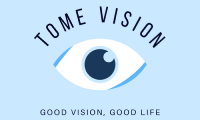The Rise of Blue Light: Do You Need Protective Lenses?
In today’s digital age, we are constantly exposed to screens, from our smartphones and tablets to our computer monitors and televisions. This increased screen time and exposure to blue light has sparked concern about its potential effects on our health. With the rising popularity of blue light glasses, many wonder if they truly offer the protection they claim. In this article, we will explore the rise of blue light and whether you really need protective lenses.
What is Blue Light?
Blue light is a type of visible light that has a short wavelength and high energy, making it one of the most intense and potentially harmful colors on the light spectrum. It is emitted by the sun, but also by electronic devices such as smartphones, tablets, computers, and LED lights. Exposure to blue light can be beneficial during daylight hours as it helps regulate our circadian rhythm, boost alertness, and improve mood. However, excessive exposure, especially during the evening and night time, can have negative effects on our health.
The Effects of Blue Light on Health
Prolonged exposure to blue light can lead to eye strain, dry eyes, headaches, and disrupted sleep patterns. Studies have shown that excessive exposure to blue light before bed can suppress the production of melatonin, the hormone that regulates our sleep-wake cycle, making it harder to fall asleep at night. Additionally, ongoing exposure to blue light may contribute to macular degeneration, a leading cause of vision loss in older adults.
The Rise of Blue Light Glasses
With the growing concern over the effects of blue light, the market for blue light glasses has boomed. These glasses claim to protect your eyes from the harmful effects of blue light by filtering out a portion of it. They often have yellow-tinted lenses that help block blue light and can be worn while using electronic devices or when exposed to LED lights. The rise of blue light glasses has been fueled by the increasing number of people spending excessive amounts of time in front of screens.
Do You Really Need Protective Lenses?
While some claim that blue light glasses are essential for anyone who spends significant time in front of screens, the scientific evidence supporting their effectiveness is still evolving. The American Academy of Ophthalmology states that blue light glasses are unnecessary for the general population and that the best way to protect your eyes is to follow the “20-20-20” rule. This rule recommends taking a 20-second break every 20 minutes and looking at something 20 feet away to reduce eye strain.
However, blue light glasses may be beneficial for certain individuals. Those who already experience symptoms of eye strain, dry eyes, or have trouble sleeping due to excessive screen time may find relief by using blue light glasses. Additionally, people who work in professions that require extended screen use, such as graphic designers or software developers, may benefit from wearing these glasses as a preventive measure.
Conclusion
The rise of blue light has sparked concerns about its potential effects on our eyes and overall health. While the scientific evidence for the effectiveness of blue light glasses is still developing, they may provide benefits for certain individuals. If you experience symptoms of eye strain or have trouble sleeping due to screen use, it may be worth considering protective lenses. However, for the general population, following the 20-20-20 rule and reducing overall screen time is still the most effective way to protect your eyes from the potential harmful effects of blue light.
